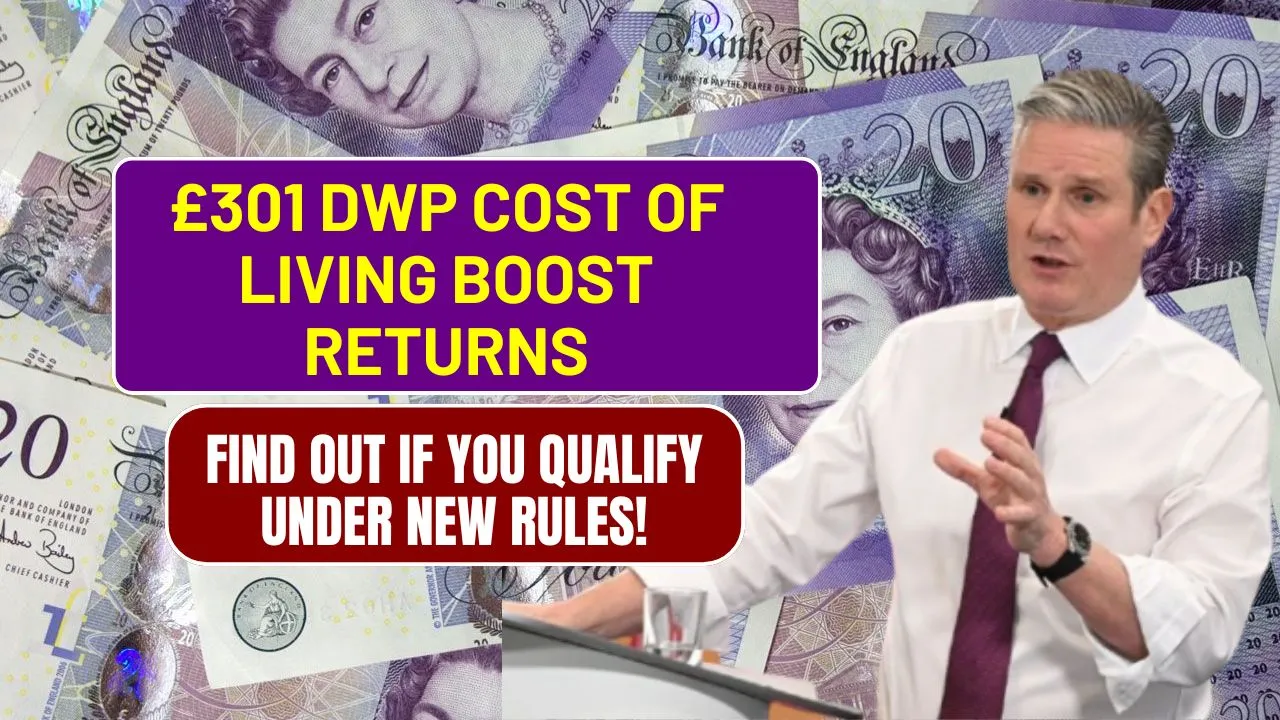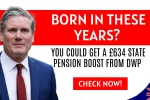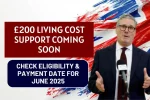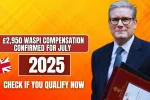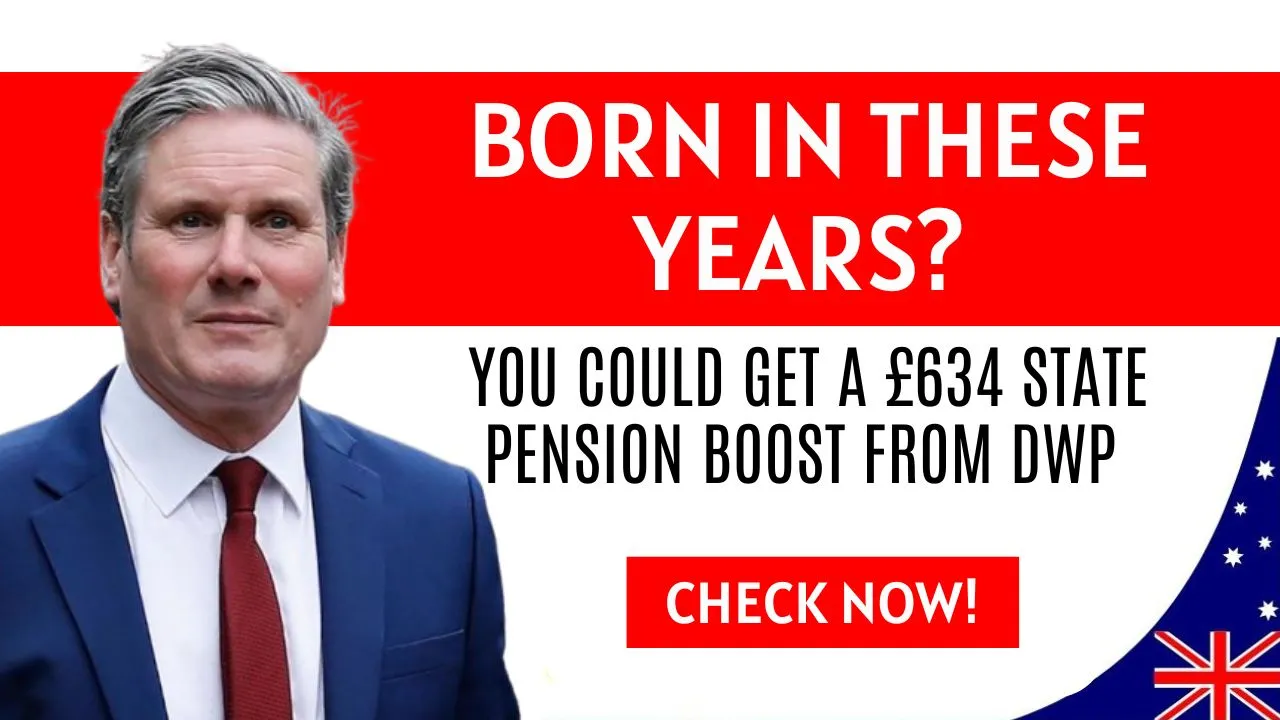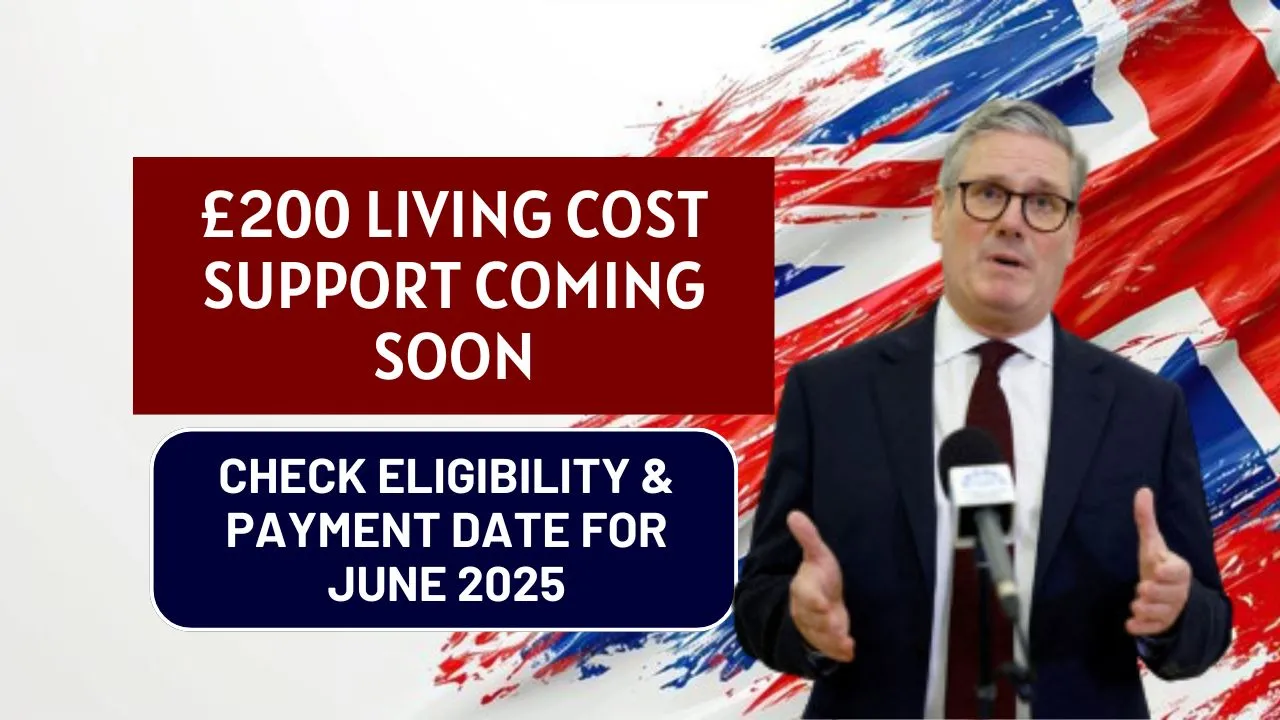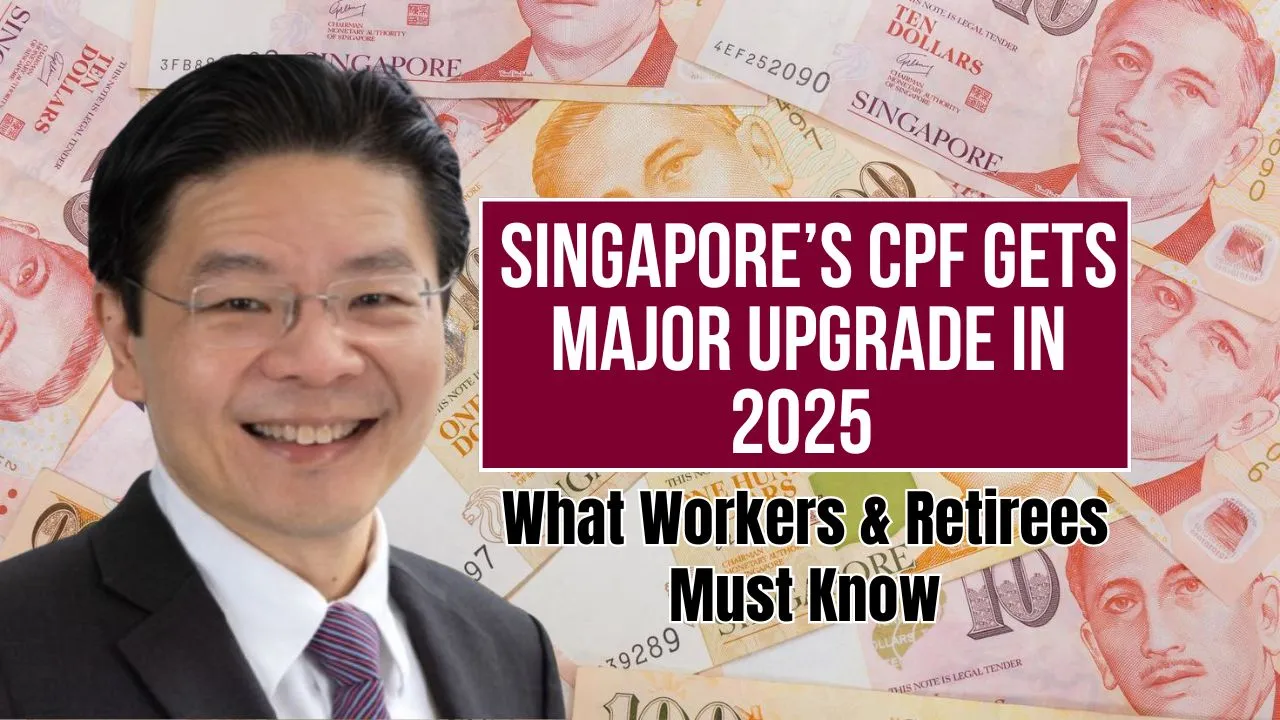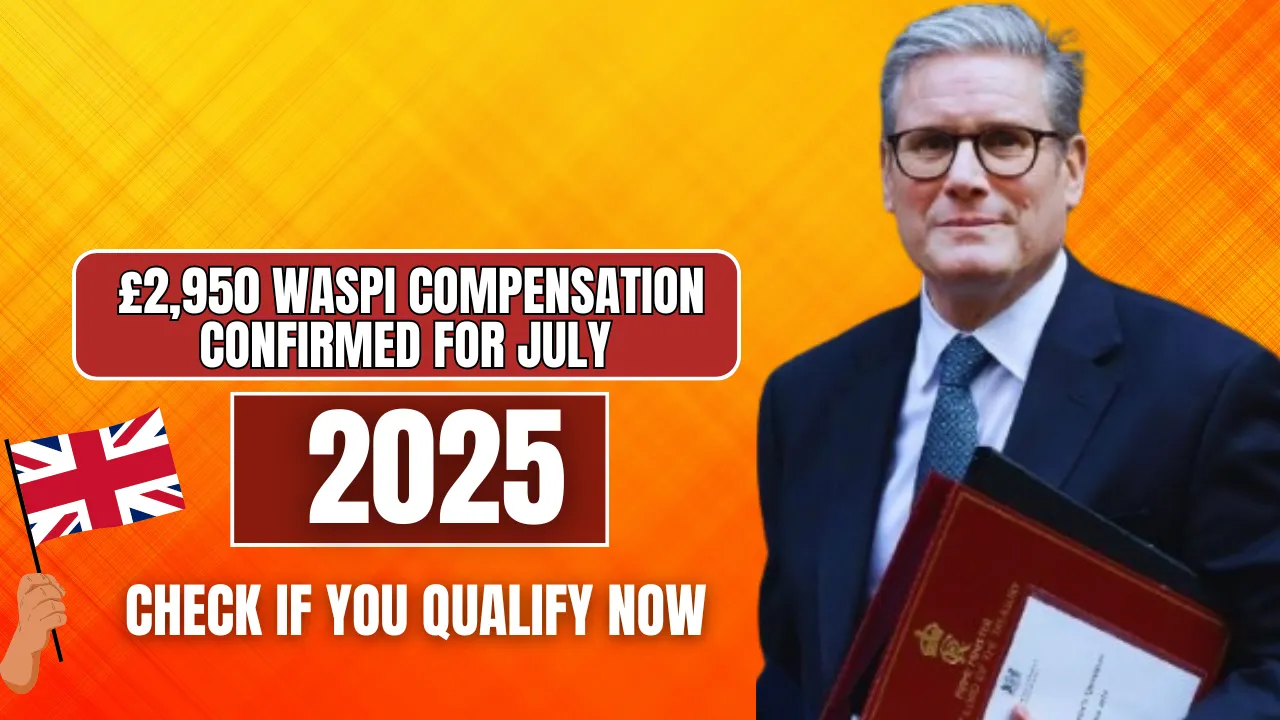£301 DWP cost‑of‑living boost: Millions across the UK are set to receive much-needed relief in 2025, as the Department for Work and Pensions reintroduces the £301 cost of living payment. With energy prices high, inflation biting, and many households still catching up after a tough few years, this payment provides a financial cushion just when it’s most needed.
The £301 DWP cost‑of‑living boost isn’t just another government handout—it’s part of a broader, smarter initiative to deliver targeted support to low-income households. With clearer rules, automatic payments, and improved timing, this year’s scheme offers not only cash relief but also more transparency and predictability for families struggling to make ends meet.
£301 DWP cost‑of‑living boost
The £301 DWP cost‑of‑living boost for 2025 is designed to provide consistent and meaningful support to those who need it most. It comes as three separate £301 instalments spread across the year, offering timely help without requiring people to apply. The scheme focuses on recipients of means-tested benefits such as Universal Credit, Income Support, and Pension Credit. This year, stricter eligibility windows and direct-to-bank delivery ensure that the support is both efficient and fair, reaching vulnerable groups without the paperwork or delays.
Overview Table
| Feature | Details for 2025 |
| Payment Amount | £301 per instalment (3 payments) |
| Payment Schedule | April–June, August–September, November–December |
| Eligibility | Means-tested benefits only (e.g., UC, Pension Credit) |
| Ineligible Claims | Contribution-only JSA/ESA, zero Universal Credit awards |
| Application Needed | No – paid automatically if eligible |
| Payment Reference on Bank Statement | “DWP COL” or “HMRC COL” |
What Is the £301 DWP Cost of Living Payment?
The £301 payment is part of the UK government’s larger effort to fight financial inequality amid rising costs of living. It supports people struggling with essential bills—like food, rent, and energy—and aims to protect those on the lowest incomes. Unlike previous cost-of-living payments that were often bundled in lump sums, this year’s format is divided equally across the year to help with better budget planning and long-term financial stability.
The payment also complements other targeted support like the £300 Pensioner Payment and the £150 Disability Payment, rounding out a safety net that serves different segments of the population.
Who Is Eligible in 2025?
To receive the £301 DWP cost-of-living boost, individuals must be claiming one or more of the following means-tested benefits during a specified eligibility period:
- Universal Credit (as long as it’s not a zero-payment period)
- Income-based Jobseeker’s Allowance (JSA)
- Income-related Employment and Support Allowance (ESA)
- Income Support
- Pension Credit
- Working Tax Credit or Child Tax Credit (administered by HMRC)
Note that individuals receiving contribution-based ESA or JSA, or those whose Universal Credit claim results in a zero award due to high earnings or sanctions, are not eligible.
2025 Payment Schedule
The payments will be distributed in three phases throughout the year:
- First Payment: Between April and June 2025
- Second Payment: Between August and September 2025
- Final Payment: Between November and December 2025
Each payment will be £301, and recipients will see the transaction labeled either as “DWP COL” or “HMRC COL”, depending on which department issues the payment. These timings provide a regular financial top-up throughout the year to help with seasonal expenses, including heating, school supplies, and winter bills.
What’s New in 2025?
Compared to previous years, the 2025 version of the cost of living boost includes several improvements:
- Refined assessment periods that make it easier to determine eligibility
- Stricter fraud control, ensuring funds go to the right households
- No need to apply—payments are made automatically based on benefit status
- Clearer bank references for easier tracking
These changes aim to improve delivery speed and reduce the risk of missed payments or administrative errors. It’s a better-designed version of earlier schemes that sometimes left people confused or excluded unfairly.
Who Won’t Receive the Payment?
Even if you receive certain benefits, you might not qualify for the £301 boost if:
- You only receive contribution-based ESA or JSA
- You had a zero Universal Credit award during the qualifying period
- Your benefit claim started after the qualifying window
- Your bank details are out of date or contain errors
- Your benefit account includes a sanction or suspension
It’s critical to ensure that your benefit account is active and that your contact and payment details are correct with DWP or HMRC.
What to Do If You Didn’t Receive It
If you’re expecting the payment but haven’t received it:
- Check your eligibility: Were you receiving a qualifying benefit during the right period?
- Look at your bank account: Payments may appear under different names depending on the source.
- Wait up to two weeks: Payments are staggered and might not all arrive on the same day.
- Contact DWP or HMRC: Use your online benefits account or helpline to raise a query.
Mistakes are rare, but acting early can help you receive future instalments without delay.
Other Support Available
In addition to the £301 cost-of-living payment, several other forms of support are available:
- Pensioner Cost of Living Payment: £300 for those aged 66+ and eligible for the Winter Fuel Payment
- Disability Cost of Living Payment: £150 for those on qualifying disability benefits
- Local Council Hardship Funds: Variable depending on your location—contact your council for help
These schemes work together to provide a layered support system for people with different needs, from age to disability to income levels.
Why This Matters
This isn’t just about £301—it’s about protecting families, seniors, and vulnerable people from slipping through the cracks. Rising food prices, increasing rent, and unpredictable utility bills create an environment where even small cash injections can bring relief.
The £301 DWP cost-of-living boost can:
- Help prevent debt
- Provide breathing room for essential spending
- Make budgeting less stressful
- Offer dignity to people navigating tough financial times
By targeting those most in need and automating the process, this policy represents an effective balance of compassion and efficiency.
FAQs
1. Do I have to apply for the £301 cost-of-living payment?
No. If you qualify, the payment will be made automatically to your registered bank account.
2. Can I get the payment if I’m only on contribution-based ESA or JSA?
No. Only the income-based versions of these benefits qualify for the 2025 payment.
3. I receive Universal Credit—why didn’t I get the payment?
You may have received a “zero award” during the eligibility window, which disqualifies you. You should also check your bank and contact details.
4. When should I contact DWP if I don’t receive the payment?
Wait up to two weeks after the scheduled payment window. Then, reach out via the DWP helpline or your online benefits portal.
5. Will this payment affect my other benefits or be taxed?
No. The £301 payment is tax-free and will not count as income when calculating other benefits.
Final thought
The £301 DWP cost‑of‑living boost in 2025 isn’t just about numbers—it’s about ensuring that no one is left behind during challenging times. If you or someone you know is struggling, check your eligibility, keep your records updated, and use this payment wisely to ease your financial load.
Call to action:
Don’t assume you’re excluded—double-check your benefits status and payment history. Update your bank details with DWP or HMRC if needed. And if you’ve found this guide useful, share it with friends or family who could benefit from the £301 boost. Together, we can ensure this vital support reaches every household that needs it.
